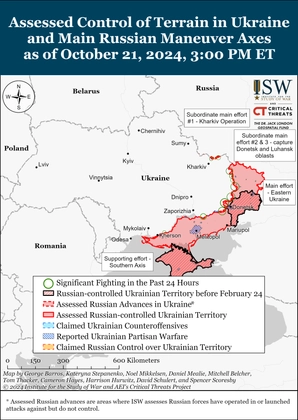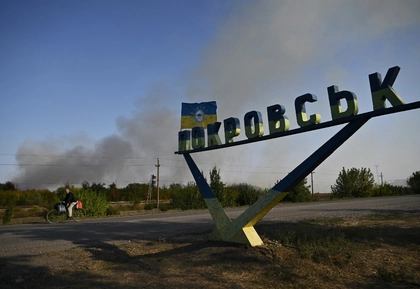Finally, it happened. Oil sanctions against Russia came into effect on Dec. 5.
At the same time, an embargo was imposed by Western nations, which refused to purchase Russian oil, and a price ceiling of $60 per barrel was introduced for buyers from countries that did not adopt the sanctions.
JOIN US ON TELEGRAM
Follow our coverage of the war on the @Kyivpost_official.
The result? It's hard to say. Too little time has passed. As per the relationship status on Facebook, "it's complicated."
One thing is clear – Russia will sell less oil. How much less is not yet known, nor how much money Russia stands to lose.
Money is the key issue. It doesn't matter how much oil Russia exports. What matters is how much money it gets for it. No wonder that U.S. Senator John McCain described Russia as "a gas station masquerading as a country." Yes, filling stations today offer a full range of services. But take gasoline out of the station and it will not be able to work.
What is especially important for Russia as a result of various sanctions is that its budget has become completely dependent on oil revenues. After all, import duty receipts have sharply decreased (there are no imports and, consequently, there are no duties), VAT revenues have fallen, and gas royalties have withered away due to Russian President Vladimir Putin's embargo.
Putin banked on such actions causing a wave of protests throughout Europe, resulting in a changing of the guard among political elites, but so far he has only provoked a strange conspiracy of urban madmen in Germany.

ISW Russian Offensive Campaign Assessment, October, 22, 2024
Many economists feared that sanctions would lead to higher oil prices, which could compensate Russia for losses in volume sales. But the exact opposite is happening. The price of oil is falling. The price of Brent oil over the past month has fallen from $100 per barrel to $78 per barrel, while the average cost of Urals oil is now less than $55 per barrel.
While everyone was living in fear of problems with supply, price was affected by demand. Moreover, there were probably many speculative positions "under embargo" on the market when the bet was placed on a rise in the price of oil after its introduction.
But there was no growth. And the price is now falling. In this regard, a high ceiling price set for oil played a useful role. It did not automatically cut off most Russian oil from the market – Russia is only puffing out its cheeks, threatening to reduce extraction, but not taking any steps in this direction. It is in fact making oil market participants feel more relaxed. Thus, a high ceiling price, which at first looked like a concession to Russia, has turned out to be an effective tool for market punishment of Russia.
But it is very difficult to sell Russian oil now. The story is too toxic and few are willing to risk falling under secondary sanctions. It has reached the point that a number of large companies have set a condition that they will not charter tankers that previously transported Russian oil.
Geography also comes into play. The main ports for loading oil tankers have always been those in the Black and Baltic Seas. This is logical, because the main market for Russia has always been Europe. But Europe is no longer an option.
At the same time, infrastructure for delivery to ports in Russia is built in such a way that oil goes to ports in the Black and Baltic Seas. But no one is buying Russian oil there now, because it is far from potential buyers, not to mention that Turkish President Recep Tayyip Erdogan is showing his character by creating a tanker traffic jam in the Bosphorus. As a result, the price of Russian oil in these ports has decreased to $44 per barrel.
Interest in Russian oil in Pacific Ocean ports is higher. After all, China and other buyers are nearby. But delivering oil there is fraught with difficulties. There are no oil pipelines – for decades, infrastructure had been built towards the West. Therefore, a very limited amount of oil can be delivered eastwards and, theoretically, sold at a price of $65 per barrel. But will anyone risk buying it above the limit? There is no answer yet. Too little time has passed to evaluate.
One thing is clear – it will definitely hurt Russia. Indeed, Russia inadvertently threw a boomerang. Despite provoking a recession in Europe, it turned out to be a minimal economic decline which resulted in a drastic decrease in the demand for oil. And now that hurts the Kremlin.
Some analysts estimate Russia's losses at up to 70 percent of oil royalties. It looks too good to be true.
Now it is clear why Putin is in such a hurry to persuade Ukraine to negotiate. The clock is ticking. In the coming months, "the gas station masquerading as a country" will feel that things are not going well without gasoline.
The views expressed are the author’s and not necessarily of Kyiv Post.
You can also highlight the text and press Ctrl + Enter






